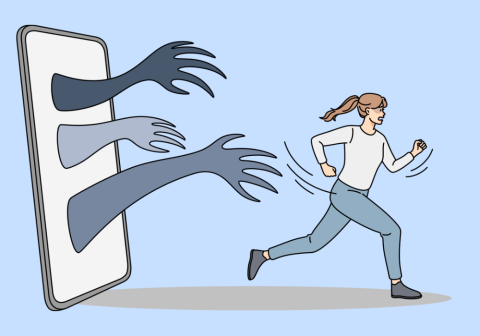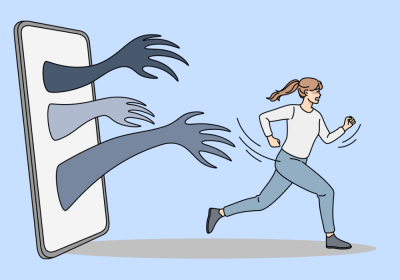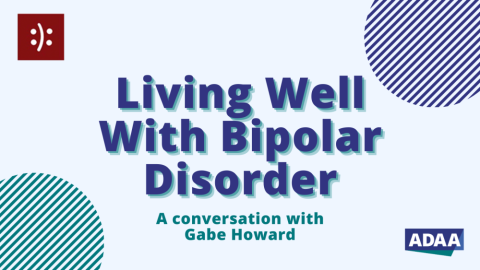What are the causes of depression? + −
- There are several possible causes of depression, and they often interplay with each other. Generally, biological or genetic, psychological and/or environmental factors, or a combination of these, are thought to underlie depression.
- Depression can be a result of a primary psychiatric condition, or it can be secondary to a medical condition. Depression may be caused by use of certain substances, such as alcohol.
- Some of the medical conditions which can cause depression, are hypothyroidism, certain types of cancer such as pancreatic cancer, Parkinson’s disease, and others.
What is Major Depressive Disorder (MDD)? + −
The most commonly diagnosed form of depression is Major Depressive Disorder (MDD). In 2017, around 17.3 million aged 18 years or older in the U.S. had experienced at least one major depressive episode in the last year, which represented 6.7 percent of all American adults. Depression is the leading cause of disability in the United States among people ages 15-44. 2
Major depression is characterized by an overwhelming feeling of sadness or a loss of interest and pleasure in most usual activities.
The other symptoms that are associated with major depression include:
- decrease or increase in appetite,
- insomnia or hypersomnia,
- psychomotor agitation or retardation,
- constant fatigue,
- feelings of worthlessness or excessive and inappropriate guilt,
- recurrent thoughts of death and suicidal ideation with or without specific plans for committing suicide, and
- cognitive difficulties, such as, diminished ability to think, concentrate and take decisions.
The symptoms must persist for two weeks or longer and represent a significant change from previous functioning. Social, occupational, educational, or other important functioning are impacted by major depressive disorder. For instance, the person may start missing work or school, or stop going to classes or their usual social activities.
Watch ADAA's Video - What is Major Depressive Disorder (MDD)?
Who is at risk of depression? + −
- Depression can affect anyone.
- Females are more likely to suffer from depression than males, however, depression affects males as well.
- Some of the risk factors that increase the likelihood of developing depression:
- Having a family member with depression
- Stressful life events (Katon 2011)
- Adverse childhood experiences (Katon 2011)
- Certain medical conditions may increase risk for depression, for example, stroke, multiple sclerosis, HIV (NIMH)
What is the difference between depression and sadness? + −
Experiencing sadness at one time or another is part of the normal human experience. However, depression is more than the occasional sadness that people experience. When an individual suffers from depression, the sadness tends to be more pervasive or long lasting, and can be accompanied by one or more of the following: decreased interest in pleasurable activities, feelings of hopelessness, low self-worth, excessive guilt, decrease in energy, concentration difficulties, appetite changes, sleep difficulty or excessive sleep, headaches, body aches and pains, and/or thoughts of suicide.
Can depression affect physical health? + −
- Mental health and physical health are closely inter-related. Depression is linked with changes in the brain. Additionally, depression can increase risk for medical conditions such as cardiovascular disease, stroke, Type 2 diabetes, Alzheimer’s disease, osteoporosis, migraine (NIMH, Steffan et al 2020). Chronic depression can also increase the risk of obesity.
- Studies show that major depressive disorder may increase risk for cardiovascular disease (Van der Kooy et al 2007). On the other hand, depression may emerge after a myocardial infarction, as a first episode or as a recurrent one (Spijkerman et al 2005).
- Similarly, studies show that depression may increase risk for diabetes, and diabetes may increase the risk of depression (Mezuk et al 2008, Katon 2011, Oladeji and Gureje 2013). Depressive disorders in people who have diabetes, can lower adherence to diabetes treatment, and can increase the likelihood of ‘poor glycemic control’ and complications from diabetes (Oladeji and Gureje 2013).
Does depression affect older adults? + −
Depression can affect the elderly as well. In fact, it is often missed in the elderly. Elderly with chronic health conditions and related impairment in functioning may be at greater risk of depression. According to the CDC, depression among elderly ranges from 1% to 5% for those living in the community, and is about 11.5% & 13.5% among elderly who are hospitalized and elderly requiring home healthcare respectively (CDC).
Can depression affect children? + −
Just like adults, children can suffer from depression that significantly impairs their social, academic and/or other domains of functioning. For more information on childhood depression, check out this ADAA blog post
What is postpartum depression? + −
When feelings of sadness, low mood, or emptiness after the birth of the baby are significant and persists for 2 weeks or longer, postpartum depression may be present. It may be accompanied by hopelessness, crying spells, decrease in interest or motivation, worthlessness, decreased energy, thoughts of suicide, thoughts of hurting the baby, lack of interest in the baby, sleep difficulty or excessive sleep, appetite increase or decrease, and/or concentration, memory difficulties. Postpartum depression can affect both the mother and the baby in various, significant ways. Timely treatment is important.
Is depression treatable? + −
There are effective treatments for depression which have been established through research; many treatments for depression have been around for years. Many people ignore signs of depression despite experiencing significant suffering. This may be due to stigma, lack of awareness, and/or barriers to accessing care. Untreated depression confers several risks. Discussing your concerns about depression with your doctor can often be the first step in getting professional help.
What are the risks of untreated depression? + −
Untreated depression can increase risk of depressive episodes becoming more frequent, prolonged and/or severe over time and increase risk of suicide. It can significantly interfere with one’s functioning at work, school, and/or in interpersonal relationships. Depression can also increase risk of alcohol and/or substance use disorders. Additionally, depression can worsen the course and outcome of chronic medical conditions, such as diabetes, cardiovascular disease, and others.
What are some of the treatments for depression? + −
Psychotherapy and medications are the most commonly used treatments for depressive disorders. For mild to moderate depression, psychotherapy is generally thought to be the first line treatment. For moderate to severe depression, a combination of medications and psychotherapy is often considered. For severe depression that has not responded to multiple trials of medications and psychotherapy, electroconvulsive therapy (ECT), transcranial magnetic stimulation (TMS) may be some of the treatment options. The type of treatment hat is suitable for an individual depends on an individual’s specific clinical situation.
What are other psychiatric conditions that can co-exist with depression? + −
Anxiety disorders and substance use disorders are some of the psychiatric conditions commonly found co-existing with major depressive disorder (Hasin et al 2018, Steffan et al 2020). Other psychiatric conditions too, such as posttraumatic stress disorder (PTSD), eating disorders, can co-occur with depression.
Content on this page was provided by ADAA member Richa Bhatia, MD, FAPA, Dual Board Certified Psychiatrist on November 2, 2020
References:
- https://www.samhsa.gov/data/sites/default/files/cbhsqreports/NSDUHDetailedTabs2017/NSDUHDetailedTabs2017.pdf. Accessed on Nov 1, 2020.
- https://www.nimh.nih.gov/health/statistics/major-depression.shtml. Accessed on Nov 1, 2020.
- https://www.cdc.gov/nchs/fastats/depression.htm. Accessed on Oct 25, 2020.
- Hasin DS, Sarvet AL, Meyers JL, et al. Epidemiology of Adult DSM-5 Major Depressive Disorder and Its Specifiers in the United States. JAMA Psychiatry. 2018;75(4):336–346. doi:10.1001/jamapsychiatry.2017.4602
- https://www.who.int/news-room/fact-sheets/detail/depression. Accessed on Nov 1, 2020.
- https://www.nimh.nih.gov/health/publications/chronic-illness-mental-health/index.shtml. Accessed on Oct 25, 2020.
- Bitsko RH, Holbrook JR, Ghandour RM, et al. Epidemiology and Impact of Health Care Provider-Diagnosed Anxiety and Depression Among US Children. J Dev Behav Pediatr. 2018;39(5):395-403. doi:10.1097/DBP.0000000000000571
- Katon WJ. Epidemiology and treatment of depression in patients with chronic medical illness. Dialogues Clin Neurosci. 2011;13(1):7-23.
- Steffen, A., Nübel, J., Jacobi, F. et al. Mental and somatic comorbidity of depression: a comprehensive cross-sectional analysis of 202 diagnosis groups using German nationwide ambulatory claims data. BMC Psychiatry 20, 142 (2020). https://doi.org/10.1186/s12888-020-02546-8
- Van der Kooy K, van Hout H, Marwijk H, Marten H, Stehouwer C, Beekman A.Depression and the risk for cardiovascular diseases: systematic review and meta analysis. Int J Geriatr Psychiatry. 2007 Jul;22(7):613-26. doi: 10.1002/gps.1723. PMID:17236251.
- Spijkerman T, de Jonge P, van den Brink RH, Jansen JH, May JF, Crijns HJ, Ormel J. Depression following myocardial infarction: first-ever versus ongoing and recurrent episodes. Gen Hosp Psychiatry. 2005 Nov-Dec;27(6):411-7. doi: 10.1016/j.genhosppsych.2005.05.007. PMID: 16271655.
- Mezuk B, Eaton WW, Albrecht S, Golden SH. Depression and type 2 diabetes over the lifespan: a meta-analysis. Diabetes Care. 2008 Dec;31(12):2383-90. doi: 10.2337/dc08-0985. PMID: 19033418; PMCID: PMC2584200.
- Oladeji BD, Gureje O. The comorbidity between depression and diabetes. Curr Psychiatry Rep. 2013 Sep;15(9):390. doi: 10.1007/s11920-013-0390-3. PMID: 23933977.
- https://www.cdc.gov/aging/mentalhealth/depression.htm. Accessed on Nov 1, 2020
Note: This website page is for informational purposes only and is not intended to provide medical or psychiatric advice or recommendations, or diagnostic or treatment opinion. This is not a complete review or description of this subject. If you suspect a medical or psychiatric condition, please consult a health care provider. All decisions regarding an individual’s care must be made in consultation with your healthcare provider, considering the individuals’ unique condition. If you or someone you know is struggling, please contact the 24x7, confidential National Hotline at 1-800-273-8255 or use the crisis text line by texting HOME to 741741 in the US, or go to http://www.suicide.org/international-suicide-hotlines.html for the suicide hotline number for your country.
















